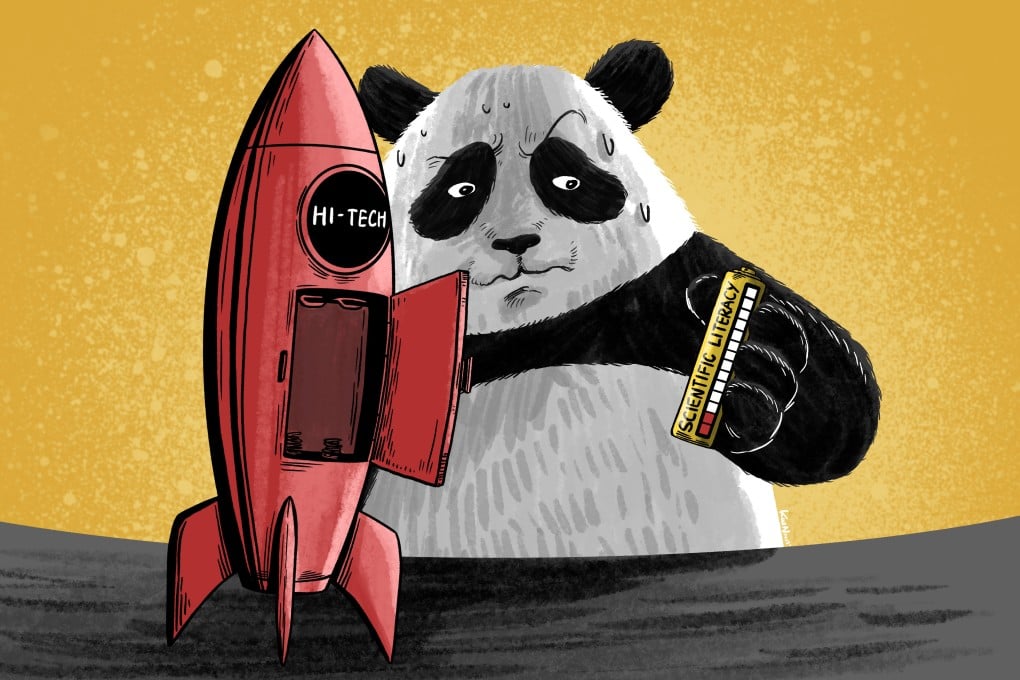China’s hi-tech ambitions under threat with scientific literacy inadequate to support innovation-driven economy
- Beijing has vowed to rely on a so-called talent dividend to drive innovation and high-quality development, but only 13 per cent are viewed as scientifically literate
- China aims to see 15 per cent of its population become scientifically literate by 2025 and increase the ratio to 25 per cent by 2035

Should you wrap a quilt around you to make you sweat when suffering from a fever? Will your skin get darker if you frequently use dark brown soy sauce?
These questions may seem simple, but in China, they have repeatedly become subjects of debate in families, often creating divides.
On paper, the level marks a significant leap forward, considering that in 2005, the same survey showed the figure stood at just 1.6 per cent.
Continuous efforts are needed if we want to narrow our gap with the US, and to realise our goal to be a global leader in innovation and technology by 2035
But it is seen as still way too low in relation to China’s ambition to grow its science and technology talent pool to support its push for independent innovation amid a tech war with the United States.
The latest survey, conducted by the state-backed China Research Institute for Science Popularisation (CRISP) last year, assessed residents aged between 18 and 69 across China.
